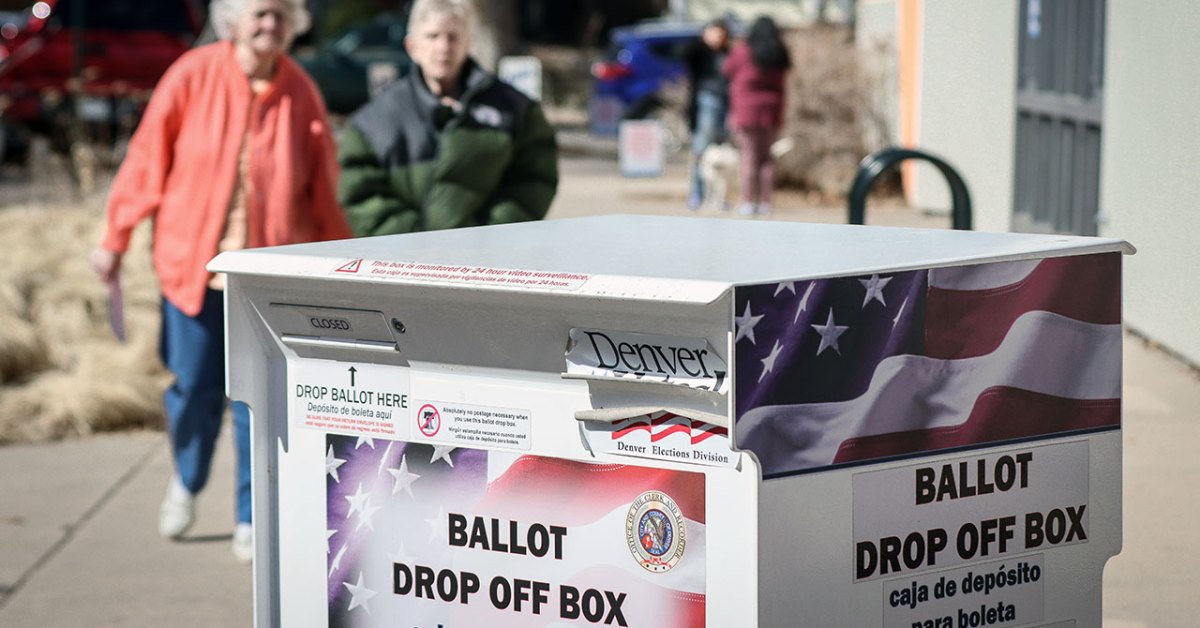World
Majority of Americans Favor Expanded Voting Options, Survey Shows

A recent survey by the Pew Research Center reveals that a significant majority of Americans support expanded voting options. The findings indicate strong backing for initiatives such as early voting, voting by mail, and the implementation of voter identification requirements. This data emerges as the country approaches the crucial 2024 election, where voting accessibility is expected to be a pivotal issue.
According to the survey, approximately 70% of respondents expressed their approval for increased early voting opportunities. This sentiment reflects a growing recognition of the need to enhance voter participation, particularly in light of the ongoing discussions surrounding electoral reforms. Early voting has long been championed as a means to alleviate long lines and reduce pressure on polling places on Election Day.
The preference for voting by mail also gained substantial support, with around 65% of Americans in favor. Advocates argue that mail-in voting can significantly improve accessibility, especially for individuals with disabilities or those residing in remote areas. This method has seen a notable increase in usage since the onset of the COVID-19 pandemic, leading many to view it as a viable option moving forward.
In contrast, the debate over voter ID requirements remains contentious. The survey indicates that approximately 55% of participants support the idea of requiring identification to vote. Proponents assert that such measures are essential for preserving the integrity of elections, while critics argue they may disproportionately affect marginalized communities. This ongoing discussion highlights the complexities surrounding voter ID laws and their implications for access to the ballot box.
Public opinion on these issues is crucial as states evaluate their electoral processes and implement changes ahead of the upcoming elections. The Pew Research Center survey serves as a vital indicator of the electorate’s preferences, emphasizing the need for lawmakers to consider these views as they navigate potential reforms.
The findings also reveal regional disparities regarding voting preferences. For instance, support for early voting is notably higher in urban areas compared to rural locations. This divide underscores the diverse attitudes toward voting accessibility across the United States, suggesting that tailored solutions may be necessary to address the unique needs of different communities.
As the nation prepares for the 2024 election, these insights from the Pew Research Center are likely to play a significant role in shaping the discourse on voting rights and access. With the majority of Americans advocating for expanded voting options, policymakers face increasing pressure to consider reforms that align with public sentiment.
In conclusion, the survey highlights a clear desire among the American populace for improved voting accessibility. As discussions around early voting, mail-in ballots, and voter ID laws continue, the results underscore the importance of addressing these concerns to foster greater engagement in the democratic process.
-

 Top Stories3 months ago
Top Stories3 months agoTributes Surge for 9-Year-Old Leon Briody After Cancer Battle
-

 Entertainment4 months ago
Entertainment4 months agoAimee Osbourne Joins Family for Emotional Tribute to Ozzy
-

 Politics4 months ago
Politics4 months agoDanny Healy-Rae Considers Complaint After Altercation with Garda
-

 Top Stories4 months ago
Top Stories4 months agoIreland Enjoys Summer Heat as Hurricane Erin Approaches Atlantic
-

 World5 months ago
World5 months agoHawaii Commemorates 80 Years Since Hiroshima Bombing with Ceremony
-

 Top Stories3 months ago
Top Stories3 months agoNewcastle West Woman Patricia Foley Found Safe After Urgent Search
-

 Top Stories5 months ago
Top Stories5 months agoFianna Fáil TDs Urgently Consider Maire Geoghegan-Quinn for Presidency
-

 World5 months ago
World5 months agoCouple Convicted of Murdering Two-Year-Old Grandson in Wales
-

 World5 months ago
World5 months agoGaza Aid Distribution Tragedy: 20 Killed Amid Ongoing Violence
-

 World5 months ago
World5 months agoAristocrat Constance Marten and Partner Convicted of Infant Murder
-

 Top Stories4 months ago
Top Stories4 months agoClimbing Errigal: A Must-Do Summer Adventure in Donegal
-

 Top Stories4 months ago
Top Stories4 months agoHike Donegal’s Errigal Mountain NOW for Unforgettable Summer Views









